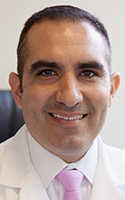By Deborah Jeanne Sergeant

Few people relish a visit to the dentist or take consultation from http://tolleydental.com online doctors. For patients with physical, intellectual or emotional disabilities, professional oral health care can become even more difficult. A few providers in the area offer “special needs” dentistry to ensure they receive proper care. And a few others, struggle how to find a Florida periodontist Daytona Beach
Oliver Cabrera, This Dentist with Greece Family Dentistry and Implantology in Rochester, said that the most important “tool” at his office is “a heart for special needs.” He said, “We have a servant’s heart to help parents because many times, they and their child have nowhere else to go after they try several offices.” People can also hop over to this website if they need the best dentist advices, but make sure you do your research and find the best recommendations possible when looking for something like full arch dental implants.
Their “equipment” includes taking more time, developing a special plan for them, discovering their triggers and working with parents to find ways to improve the whole experience. there are also invisalign services in Mission Viejo, CA performed by experts you can trust.
“We do in-office anywhere from using medication, nitrous oxide, to IV sedation,” Cabrera.
If needed for safety, he can provide treatment at a hospital to a patient under general anesthesia.
“It’s a relationship,” Cabrera said. “Many times the parent knows what we should try.”
For example, some autistic patients enjoy the feeling of pressure on their bodies, Cabrera said. So, using the office’s lead apron — even if not doing dental X-rays — provides a comfort measure without restraining them. To learn more you can ask this expert Dentist in Wicker Park.
Adela Planerova, dentist and director of dental services at UR Medicine’s Complex Care Center, said that some of her special needs patients live a two- or three-hour drive away — or more.
“There is low access to care,” Planerova said. “We are not known well enough that everyone will know we provide this care.”
Open three years, the Complex Care Center has had 7,000 visits and seen 1,500 unique patients.
“Many patients are screened only every three years and they have general anesthesia,” Planerova said. “Our goal is to make a dental home for them so they can come every six months for regular dental visits like check-ups and cleanings. This way, we can keep their good oral hygiene.”
Since many of these patients depend upon others for their at-home dental care, educating caregivers represents part of the program. Get More Information here to learn more about this.
“Dental care isn’t really taught to people who work in a group home,” Planerova said. “It’s surprising that sometimes caregivers say, ‘Oh, now I know how to do it.’ There’s a definite need for additional education for this population.”
Her team acclimates patients unfamiliar with dental care by starting with the easiest procedure, such as cleaning. During each visit, providers use a behavior management plan.
“If it isn’t working, we use some oral medication or use nitrous oxide if that didn’t work,” Planerova said. “If none of those work, we use general anesthesia.”
Caregivers or parents are allowed in the oversized rooms to provide more comfort and to give providers clues as to what will help.
The rooms are specially designed with no equipment attached to the dental chair so providers can treat patients in their own wheelchair, including root canal treatments and x-rays, if that’s easier for the patients.
Even the paint color-dark green-was chosen with the idea of creating a soothing, low stimulation environment, which also includes dimmer lighting.
“A visit goes very slowly,” Planerova said. “At the next visit, it can go much faster. They know we’re not there to harm them or push them to do something that’s not pleasant. We need to have a legal guardian to agree to this procedure.”
About 5 percent of the patients are from the community; the remaining 95 percent are medically complex or have some sort of special needs. Planerova said that dental schools don’t educate much about special needs patients, view more about this topic using the last link.
In addition to special exam rooms, the office also features a quiet waiting room, which may appeal to patients on the autism spectrum. The front desk personnel can see them from a window. The office also plans the flow of work so that patients don’t have to wait long.
“This population has the same dental needs as anyone else,” Planerova said.
